The discrete trial procedure for autism therapy brings a wealth of benefits that can truly make a difference for families. Think about enhanced skill acquisition, structured learning environments, and effective reinforcement strategies—these are just some of the key advantages! 🌟
What’s even more exciting is how the article highlights personalized approaches. These strategies not only promote independence but also improve communication and social skills. Plus, they ensure long-term positive outcomes for children with autism, thanks to consistent caregiver involvement and tailored interventions. Let’s explore this together! We’re here to help you every step of the way!
The discrete trial procedure has become a cornerstone in autism therapy, providing a structured and effective way to help children develop essential skills. By breaking down complex tasks into manageable steps, this method not only boosts learning but also empowers children with autism to thrive in various aspects of life.
But what really makes discrete trial training special is its ability to foster independence and long-term behavioral improvements. How can caregivers and therapists tap into these benefits to create lasting change in the lives of children with autism?
Let’s explore this together! This article dives into the key advantages of the discrete trial procedure, shining a light on its transformative impact on therapy and everyday living.
At Rori Care, we understand that every child is unique, which is why we employ a tailored method for the discrete trial procedure within our ABA therapy framework. Our journey begins with a comprehensive assessment, allowing our experienced analysts to create personalized behavior intervention strategies. These strategies are designed to encourage positive behavior transformation and help develop essential skills.
By focusing on the individual needs of each child, Rori Care not only boosts the effectiveness of therapy but also fosters a warm and supportive environment. This atmosphere promotes learning and growth, making the process enjoyable for everyone involved. We’re committed to guiding families through the autism care journey and empowering caregivers with ABA principles. Together, we can navigate this journey with confidence and support!
The discrete trial procedure focuses on breaking down complex skills into smaller, manageable parts, which makes learning more accessible for individuals with autism. Each discrete trial procedure consists of:
This structured approach, which incorporates the discrete trial procedure, not only fosters skill development but also helps young learners understand the connection between their actions and outcomes, enriching their educational journey.
A qualified behavior analyst plays a vital role in this process, crafting personalized plans that set measurable goals and use evidence-based strategies. By continuously assessing and adjusting these plans, we ensure that the training remains aligned with each individual's unique needs. This ultimately encourages positive behavior changes and enhances skill acquisition.
Let’s explore this together! If you’re curious about how this could work for your child, we’re here to help you every step of the way!
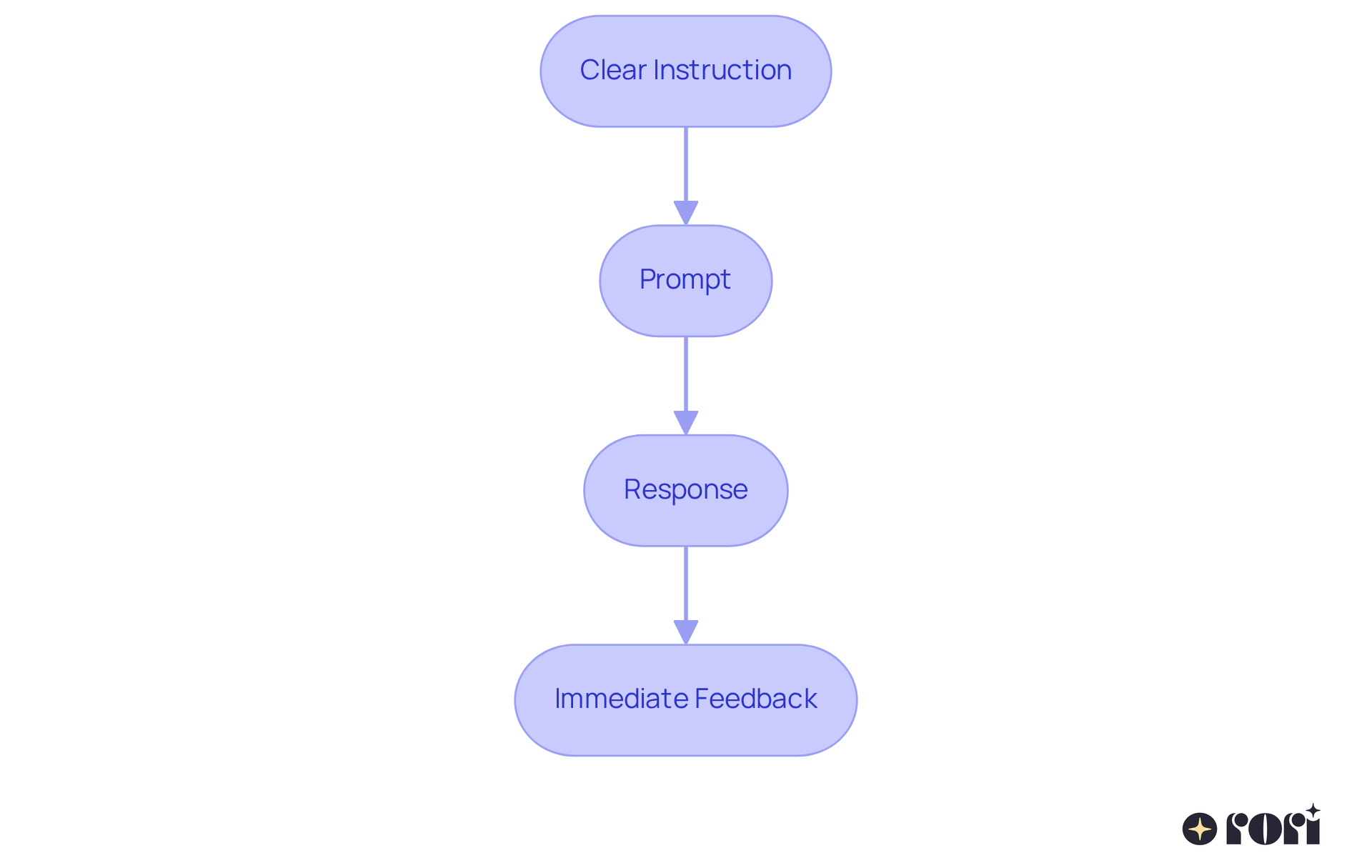
The organized learning setting during the discrete trial procedure sessions is truly vital for children with autism. This space is designed to keep distractions at bay, helping kids focus and dive deep into their learning. By tapping into the science of learning and behavior, ABA therapy tailors itself to each child’s unique needs while keeping the environment and routine consistent.
This approach, which employs the discrete trial procedure, helps children better anticipate what’s expected of them, boosting their ability to learn and remember new skills. Ultimately, this structured environment nurtures their growth in verbal and social skills, making for a richer learning experience. Let’s explore this together and see how it can make a difference!
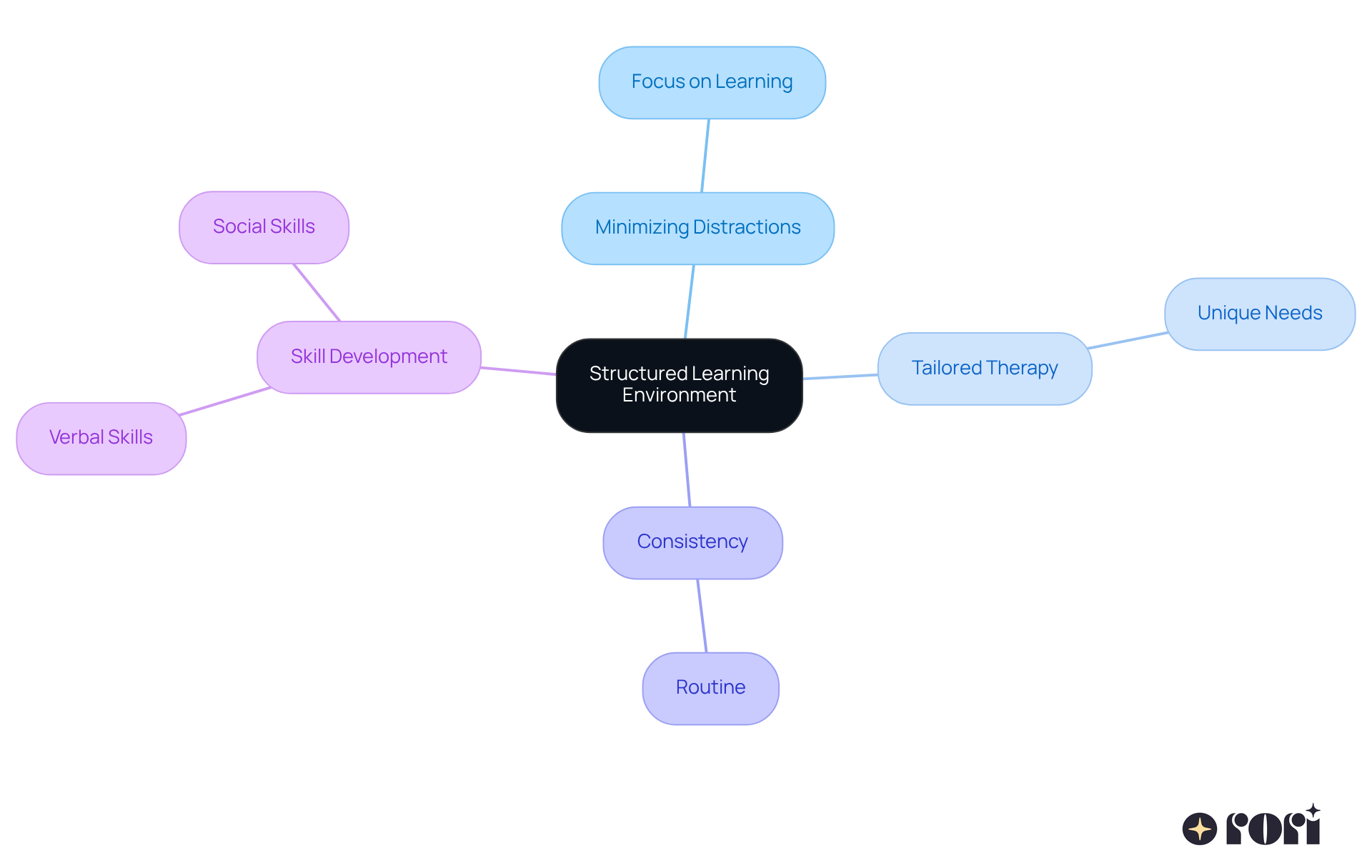
Effective reinforcement strategies play a vital role in the discrete trial procedure. By providing prompt and meaningful incentives for correct answers, therapists can motivate young learners to engage in the educational journey. These rewards can range from a simple verbal praise to tangible items, tailored to each child’s unique preferences. This kind of positive reinforcement not only encourages desired behaviors but also nurtures a sense of accomplishment and confidence in the child.
When caregivers are informed about ABA principles and strategies, they can better support their children’s learning at home. This ensures consistency and boosts the effectiveness of these reinforcement techniques. Active participation empowers caregivers, allowing them to make informed choices that positively impact their child’s progress. As a result, we see improved behavioral outcomes and enhanced support for their development. Let’s explore this together!
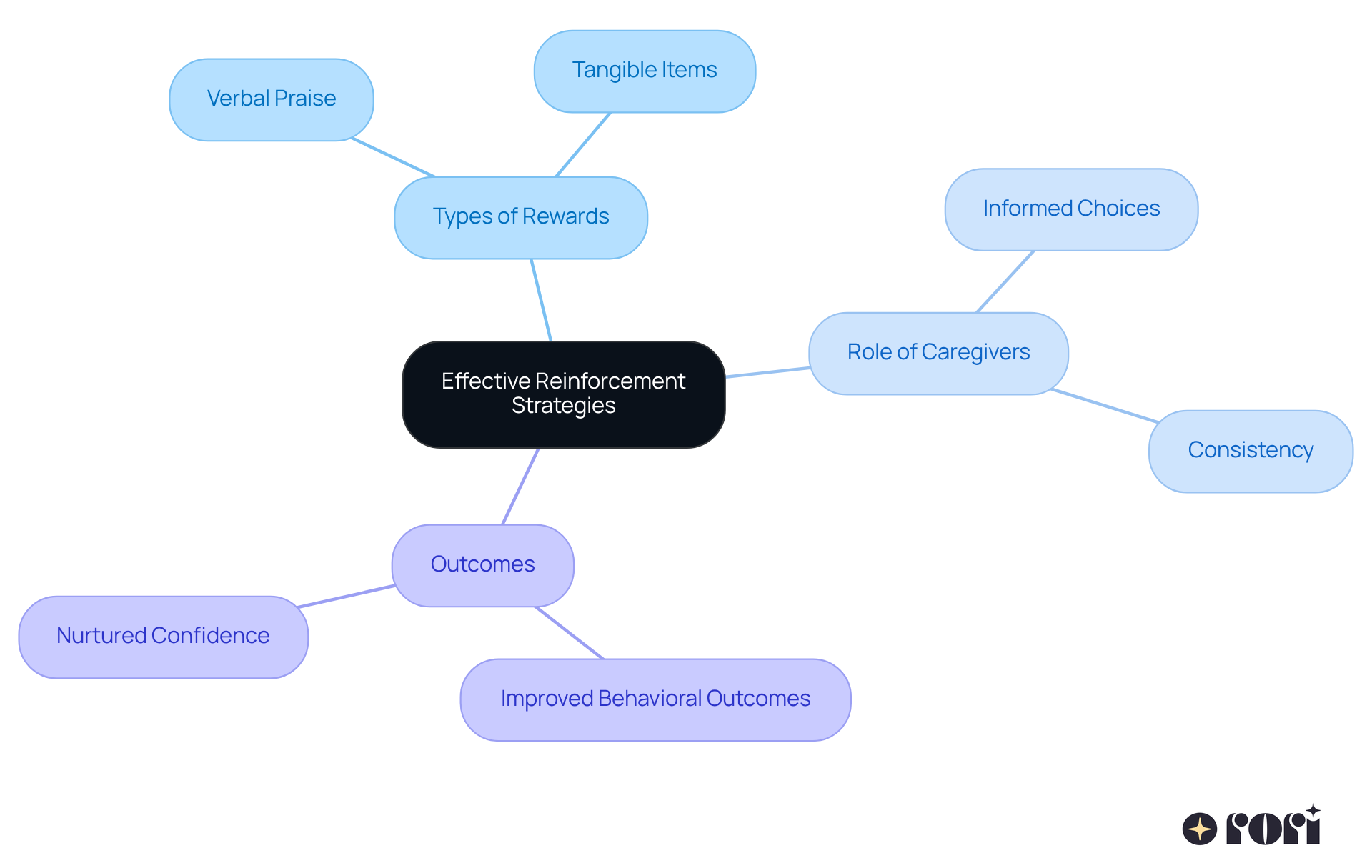
A significant benefit of Discrete Trial Training (DTT) is its focus on ability generalization, which is so important for kids with autism. Therapists interact with young individuals to help ensure that the skills learned in therapy sessions can be used in real-life situations, whether at home or in social settings. By incorporating everyday scenarios into training, kids can practice and strengthen their abilities, promoting greater independence and confidence in what they can do.
For example, imagine a child learning to ask for a snack during a session and then practicing this skill at home with family members. This approach not only boosts their ability to communicate effectively but also empowers them to navigate daily situations with ease. When caregivers understand ABA principles and strategies, they can make informed decisions that positively influence their child’s progress, further enhancing the effectiveness of the discrete trial procedure.
Ultimately, the goal of the discrete trial procedure is to equip young individuals with the tools they need to thrive in their everyday lives, ensuring a smooth transition from therapy to practical application. To support your child even more, consider setting up practice scenarios at home, like role-playing different situations where they can use their skills. This active involvement not only improves behavioral outcomes but also empowers you as caregivers, boosting your confidence and reducing stress in the family dynamic. Let’s explore this together!
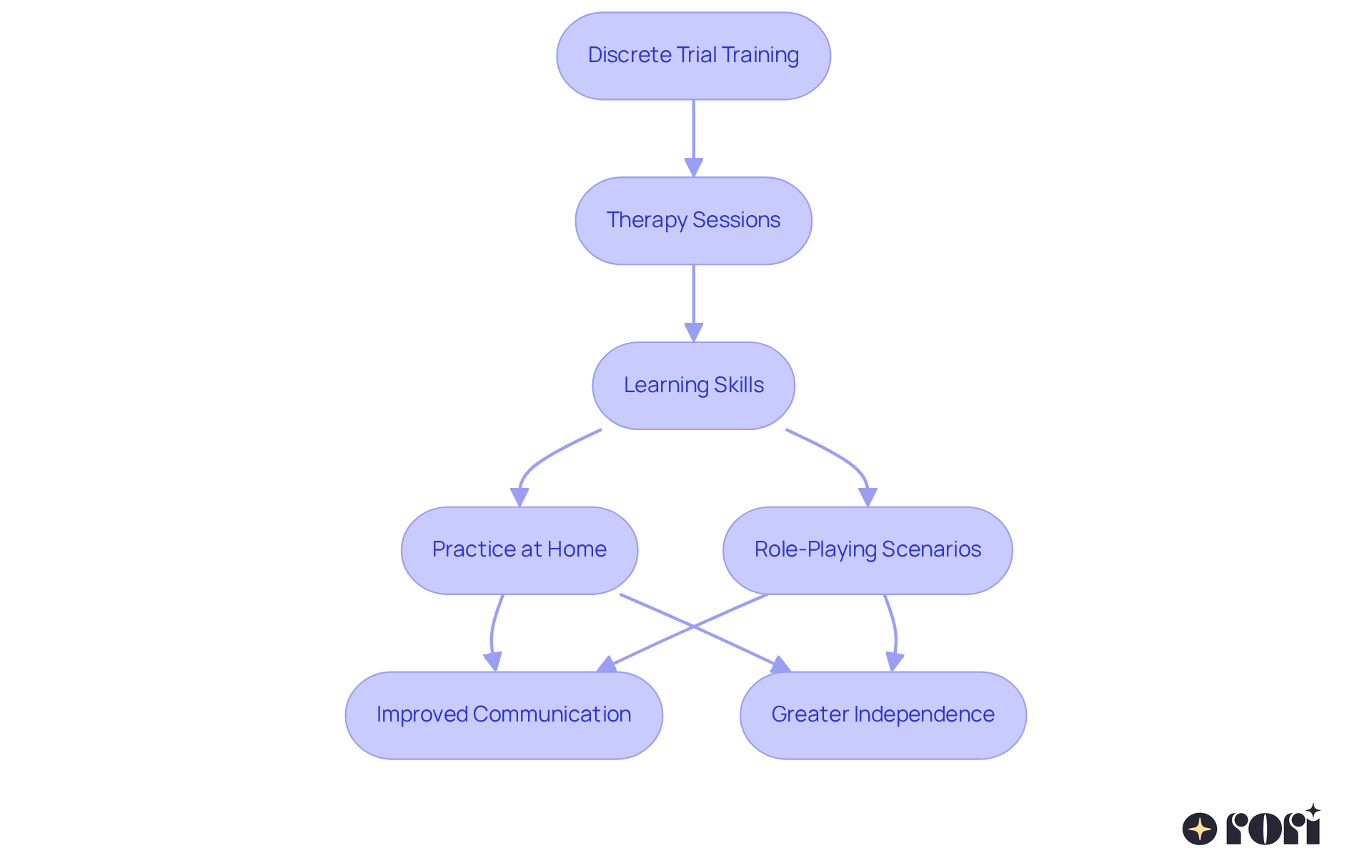
Data-driven progress tracking is a key part of the discrete trial procedure, and we understand how important it is for parents to stay informed. Clinicians carefully gather information on each young individual’s performance during the discrete trial procedure, which allows for an objective evaluation of progress over time. At Rori Care, we’re all about keeping your information safe! We prioritize HIPAA compliance by anonymizing data before processing it with advanced language models like LLAMA 3, GPT4v, Gemini 1.5, Claude Opus 3, and Mixtral 8x7b. This way, you can feel secure knowing that sensitive information is handled with care.
The data we collect helps guide treatment choices, allowing therapists to adapt strategies and objectives based on your child’s changing needs. By regularly reviewing this data, families can gain valuable insights into their child’s development and celebrate milestones achieved. And don’t worry—your privacy is always safeguarded. You can request data deletion at any time!
Additionally, we use anonymized inputs and outputs to finetune our models, ensuring that original recordings are not stored. Let’s explore this together and make the most of your child’s journey! We’re here to help you every step of the way!
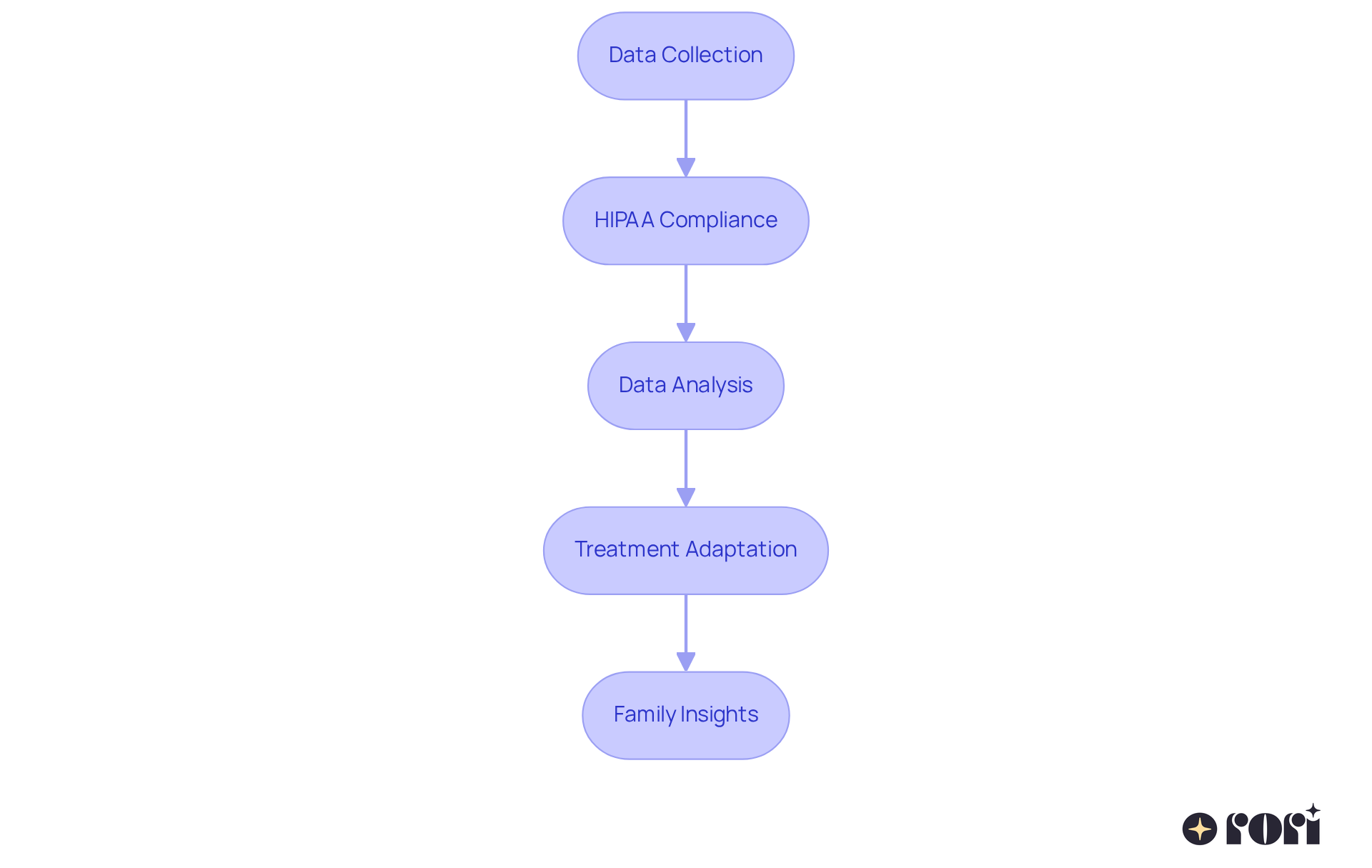
The discrete trial procedure is a fantastic method to help improve communication skills for individuals with autism! By focusing on specific trials that employ the discrete trial procedure for language development, therapists can guide young people in learning how to express their needs, ask questions, and engage in conversations. This structured approach not only builds vocabulary but also enhances their ability to communicate effectively with peers and adults, leading to better interactions.
And there’s more! Social interaction group therapy, led by skilled therapists, really helps individuals boost their social exchanges and communication in a group setting. This type of therapy provides opportunities for kids to practice their skills in real-time, receive feedback, and learn from their peers, which ultimately fosters greater competence and stronger relationships.
Let’s not forget about caregiver education—it plays a crucial role in this journey! Parents gain valuable resources and insights to support their child’s development effectively. For instance, caregivers learn techniques to enhance communication skills at home, ensuring consistency and encouraging further growth. We’re here to help you every step of the way!
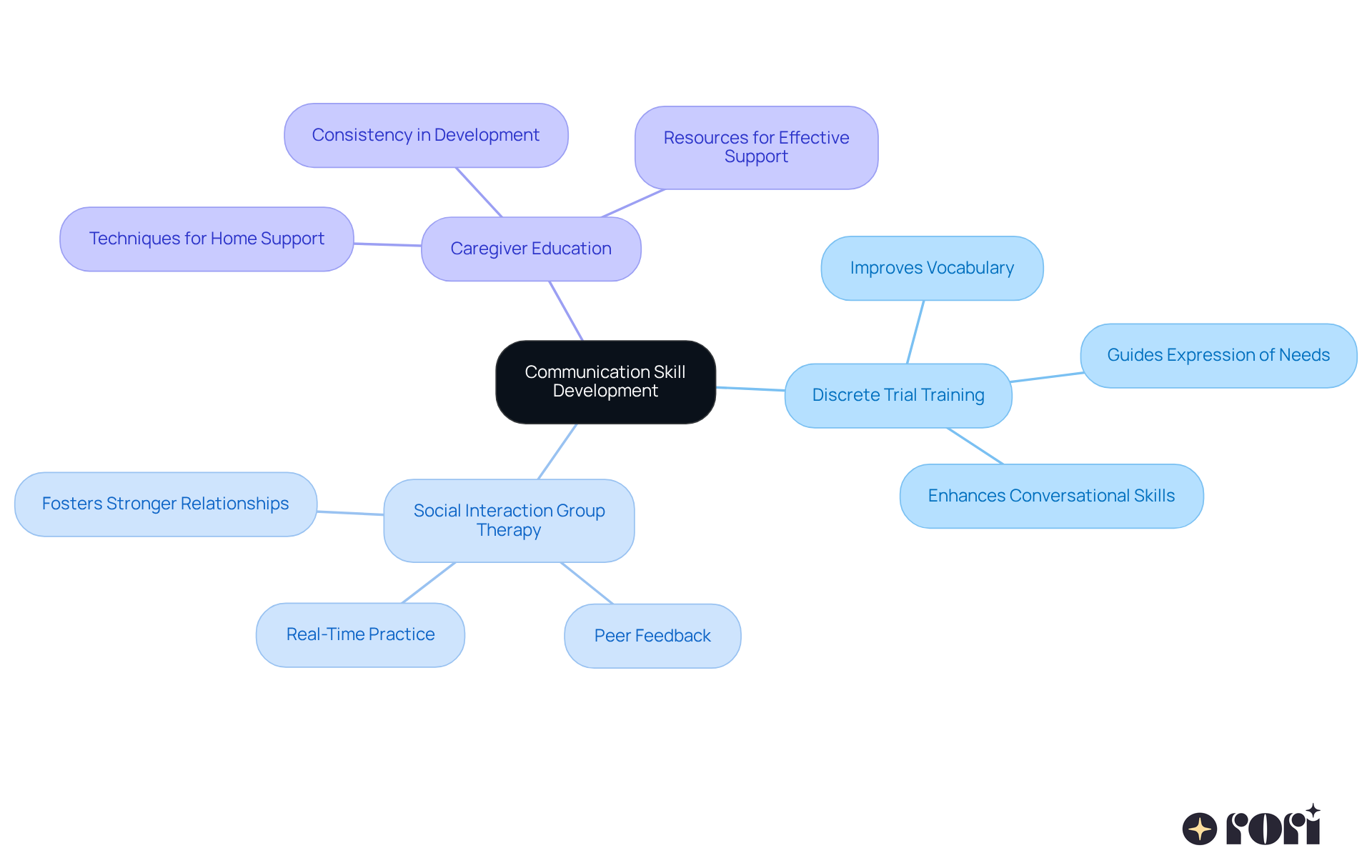
At Rori Care, we understand the challenges parents face when it comes to helping their children develop interpersonal skills. Through our discrete trial procedure, which is facilitated by our dedicated clinical leadership team, we create a nurturing environment that respects neurodiversity. Here, youngsters can learn and practice essential social skills in a safe space.
Our therapists design engaging experiments that simulate real-life interactions, teaching kids how to:
By practicing these skills, they gain the confidence needed to connect with their peers in everyday situations. This not only enhances their social relationships but also fosters a sense of belonging.
We believe in empowering both youth and their caregivers. That’s why we share ABA principles and strategies, equipping parents with the tools they need to support their children’s behavioral goals. Together, we can make informed decisions that lead to better outcomes. Let’s explore this journey together—your child’s success is our priority!
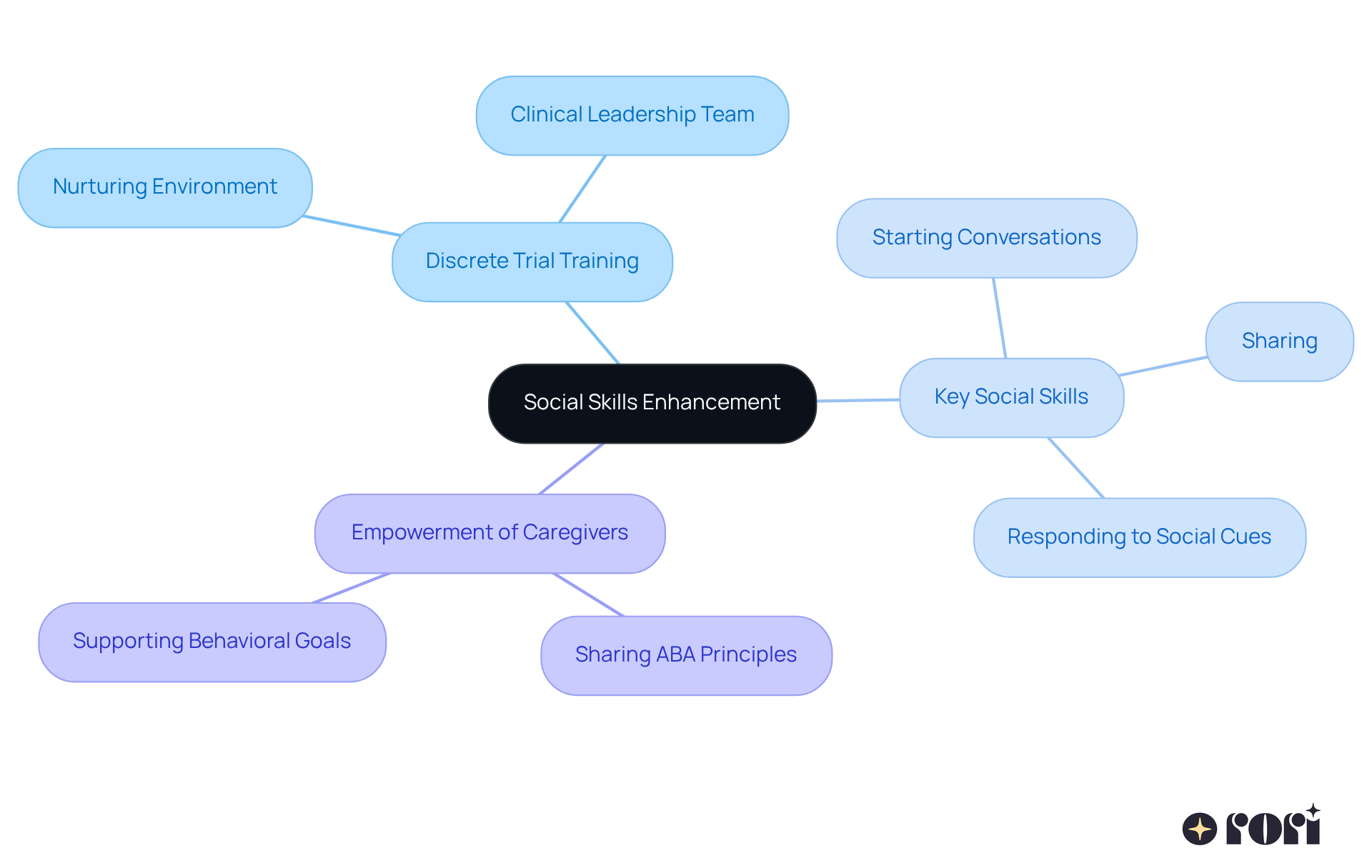
One of the key goals of the discrete trial procedure is to foster independence in children with autism. By teaching essential life skills through structured activities, kids learn to tackle tasks like dressing, feeding, and personal hygiene on their own. This focus on self-sufficiency, facilitated by the discrete trial procedure, not only boosts their daily living skills but also enhances their self-esteem and confidence, setting them up for greater independence as they grow.
What’s really exciting is our behavior care engine! It updates intervention and skill acquisition plans after each session based on the progress made. When treatment plans are tailored according to progress reports and actively involve caregivers, we see significant improvements in 90% of young individuals. This collaborative approach ensures that each child's unique needs are met, further supporting their journey toward independence.
Parents, we encourage you to actively participate in your child’s therapy sessions! By reinforcing these skills at home, you play a crucial role in their development. Let’s explore this together and make every step count!

The long-term advantages of the discrete trial procedure truly go beyond just immediate ability acquisition. They have shown significant effects on individuals with autism. Many studies indicate that youngsters who participate in the discrete trial procedure often demonstrate lasting improvements in behavior, communication, and social skills that can last into adulthood. For example, case studies reveal how ABA therapy effectively reduces behavioral disruptions during group activities, leading to better engagement and participation. Plus, the discrete trial procedure helps kids develop conversation skills, enabling them to start and maintain social exchanges—essential for building confidence and social abilities.
A key to the success of the discrete trial procedure is the active involvement of caregivers. When caregivers are educated on ABA principles and strategies, they feel empowered and can provide consistent support at home, complementing professional interventions. With a deeper understanding of the discrete trial procedure, caregivers can make informed decisions that positively impact their child's progress, leading to improved behavioral outcomes. This education also helps alleviate stress and enhances overall family dynamics, further supporting the child's development. By laying a strong foundation during early intervention, the discrete trial procedure equips children with essential tools to tackle life's challenges, such as better decision-making and safety awareness. This structured approach promotes resilience and adaptability as they grow. The transformative power of the discrete trial procedure highlights its vital role in improving autism outcomes, making it an essential part of effective therapy for autism. Let’s explore this together!
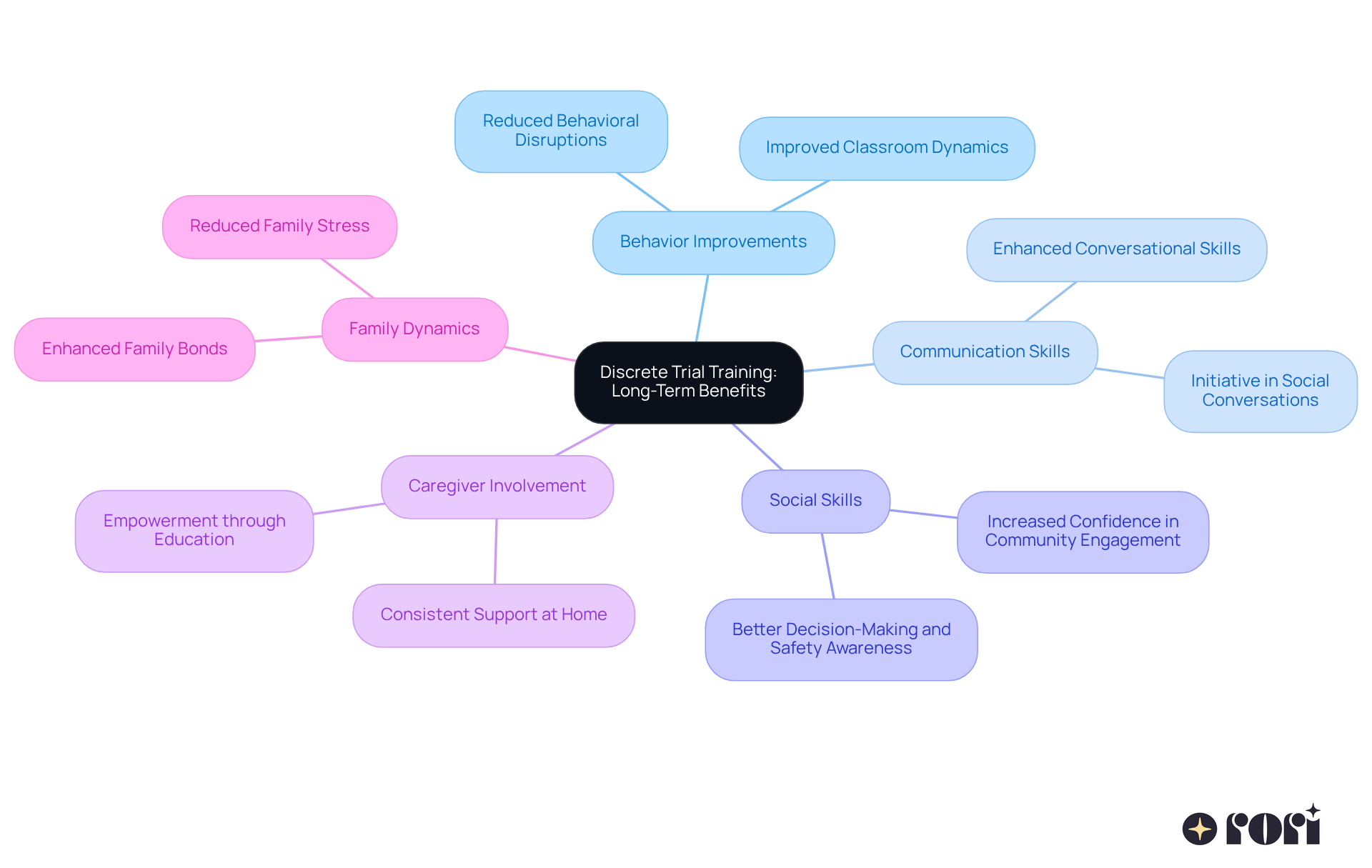
The discrete trial procedure truly shines as a transformative approach in autism therapy. It offers a structured and personalized framework that enhances learning outcomes for children. By breaking down complex skills into manageable tasks, this method not only helps with skill acquisition but also nurtures a supportive environment where children can thrive. With a focus on individualized strategies, each child's unique needs are met, promoting independence and confidence.
Throughout this article, we've highlighted the many benefits of the discrete trial procedure. Its effectiveness in skill generalization, communication development, and social skills enhancement is remarkable! Plus, the integration of data-driven progress tracking allows for continuous adaptation of strategies, ensuring therapy stays aligned with each child’s evolving needs. And let’s not forget the active involvement of caregivers; it’s crucial! This involvement reinforces learning at home, fostering a collaborative approach to therapy.
Ultimately, the long-term impacts of the discrete trial procedure go beyond immediate skill acquisition. It equips children with essential tools for navigating life’s challenges. As caregivers and therapists work together, they can create a lasting foundation that promotes resilience and adaptability. Embracing the principles of discrete trial training not only enhances the lives of children with autism but also empowers families to support their development effectively.
The journey toward improved outcomes is a shared one. Each step taken in this process contributes to a brighter future for everyone involved. Let’s explore this together! We're here to help you every step of the way!
What is Rori Care's approach to ABA therapy for autism?
Rori Care employs a tailored method for discrete trial training within ABA therapy, starting with a comprehensive assessment to create personalized behavior intervention strategies that encourage positive behavior transformation and skill development.
How does discrete trial training facilitate learning for children with autism?
Discrete trial training breaks down complex skills into smaller, manageable parts, making learning more accessible. Each trial includes a clear instruction, a prompt, a response, and immediate feedback, which helps young learners understand the connection between their actions and outcomes.
What role does a qualified behavior analyst play in discrete trial training?
A qualified behavior analyst crafts personalized plans that set measurable goals and utilize evidence-based strategies. They continuously assess and adjust these plans to align with each individual's unique needs, promoting positive behavior changes and enhancing skill acquisition.
Why is a structured learning environment important in discrete trial training?
A structured learning environment minimizes distractions, helping children with autism focus on their learning. This consistency allows children to better anticipate expectations, enhancing their ability to learn and remember new skills, particularly in verbal and social areas.
How does Rori Care support families during the autism care journey?
Rori Care is committed to guiding families through the autism care journey and empowering caregivers with ABA principles, ensuring they have the support needed to navigate this process confidently.